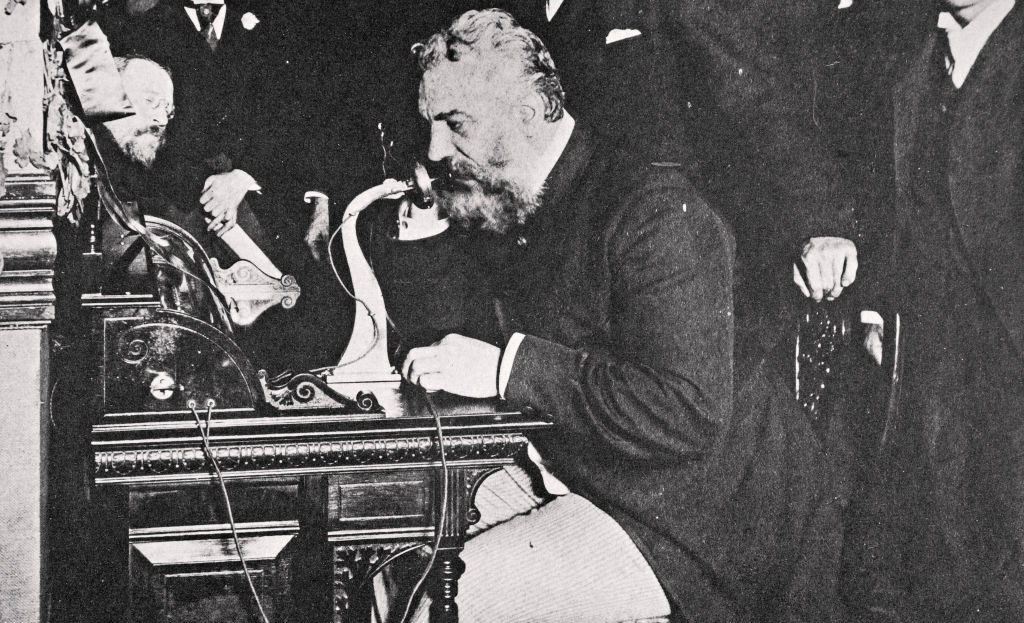“Unbelievable Forecasts: 10 Futuristic Predictions That Crashed and Burned!”
His father continued to advise him against electricity, especially when he was debating on investing in Edison. Luckily for Morgan, he continued not to listen to his father and heavily invested in electricity. This led him to eventually financing General Electric, which is still widely used today.
Washing The Whole House With A Hose

In 1950, the science editor of The New York Times, Waldemar Kaempffert, released a series of writings titled “The Miracles You’ll See in the Next Fifty Years.” One of these miracles he predicted involved house cleaning, in which he wrote the experiences of a future housewife he named “Jane Dobson.”
He wrote: “When Jane Dobson cleans house she simply turns the hose on everything. Why not? Furniture (upholstery included), rugs, draperies, unscratchable floors—all are made of synthetic fabric or waterproof plastic.” He then claimed a drain would collect the water and she would turn on hot air to dry everything off. We wish this was the case!
Injections That Would Give Us Extended Lives

Even though this prediction is supposed to come true by 2030, it doesn’t look like we’re there quite yet. Prominent lawyer and friend of Winston Churchill, FE Smith, wrote in 1922 about the medical advances he foresaw in the future. He believed that medical injections would be available that would allow people to live to be upwards of 150 years.
However, he was concerned about the idea, stating, “How will youths of 20 be able to compete in the professions or business against vigorous men still in their prime at 120, with a century of experience on which to draw”?
Our Brains Won’t Be Able To Keep Up With The Speed Of Cars

In 1904, The New York Times reported on a debate between a brain specialist and a physician about the dangers of high-speed automobiles. One of the most significant arguments was that our brains wouldn’t be able to keep up with the speed of the car.
The report states, “It remains to be proved how fast the brain is capable of traveling […] If it cannot acquire an eight-mile per hour speed, then an auto running at the rate of 80 miles per hour is running without the guidance of the brain, and the many disastrous results are not to be marveled at.”
Smartphones Failing

Before the explosion in popularity of smartphones, some people were skeptical about the idea of a personal phone doubling as a kind of computer. As late as 2007, the CEO of Microsoft, Steve Ballmer, proclaimed that “There’s no chance that the iPhone is going to get any significant market share. No chance.”
Maybe that was just wishful thinking so Microsoft stayed relevant, or maybe he really believed it. Either way, he couldn’t have been further with the truth, seeing that smartphones, especially the iPhone, are some of the world’s best-selling products.
People Will Only Want To Shop At Stores

Time Magazine released a piece in 1966 titled “The Futurist,” which predicted what life would look like in the year 2000. One thing they predicted is that people will only shop at brick and mortar stores. It read, “Remote shopping, while entirely feasible, will flop—because women like to get out of the house, like to handle the merchandise, like to be able to change their minds.”
Of course, this was a failed prediction considering the success of websites such as Amazon, which the majority of people use on a regular basis. Some people don’t even go to the grocery store anymore, ordering their food online instead.
People Will Get Tired Of Televisions

In 1946, 20th Century Fox higher-up Darryl Zanuck claimed that “Television won’t be able to hold on to any market it captures after the first six months. People will soon get tired of staring at a plywood box every night.”
Whether he actually believed this is unclear, but surely he had this opinion because he was afraid that television would eventually become more popular than going to the theaters. Being an important man in the film industry, it’s not surprising that he would speak out against the new invention.
Everything Was Going To Collapse On January 1, 2000

Before the turn of the millennium, computers only recorded dates using the last two digits of every year. With the year 2000 around the corner, a lot of respected and trusted people began to fear that computers would think it was 1900 when the numbers turned to “00.”
Some experts believed that this would lead to a complete and total economic and social collapse, sparking mass hysteria. Known as Y2K, when the clock struck midnight, everything remained intact and believers breathed a sigh of relief.



















